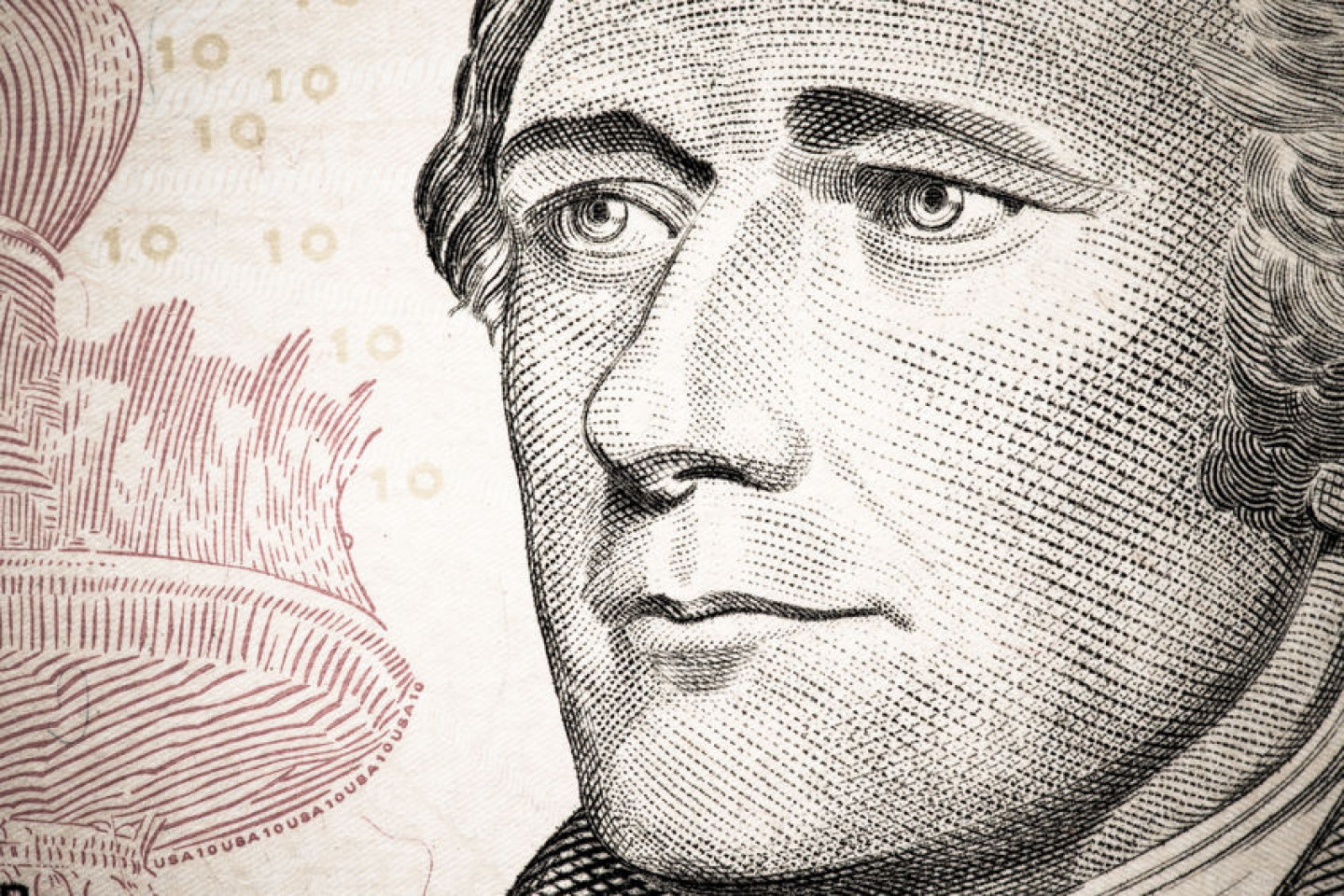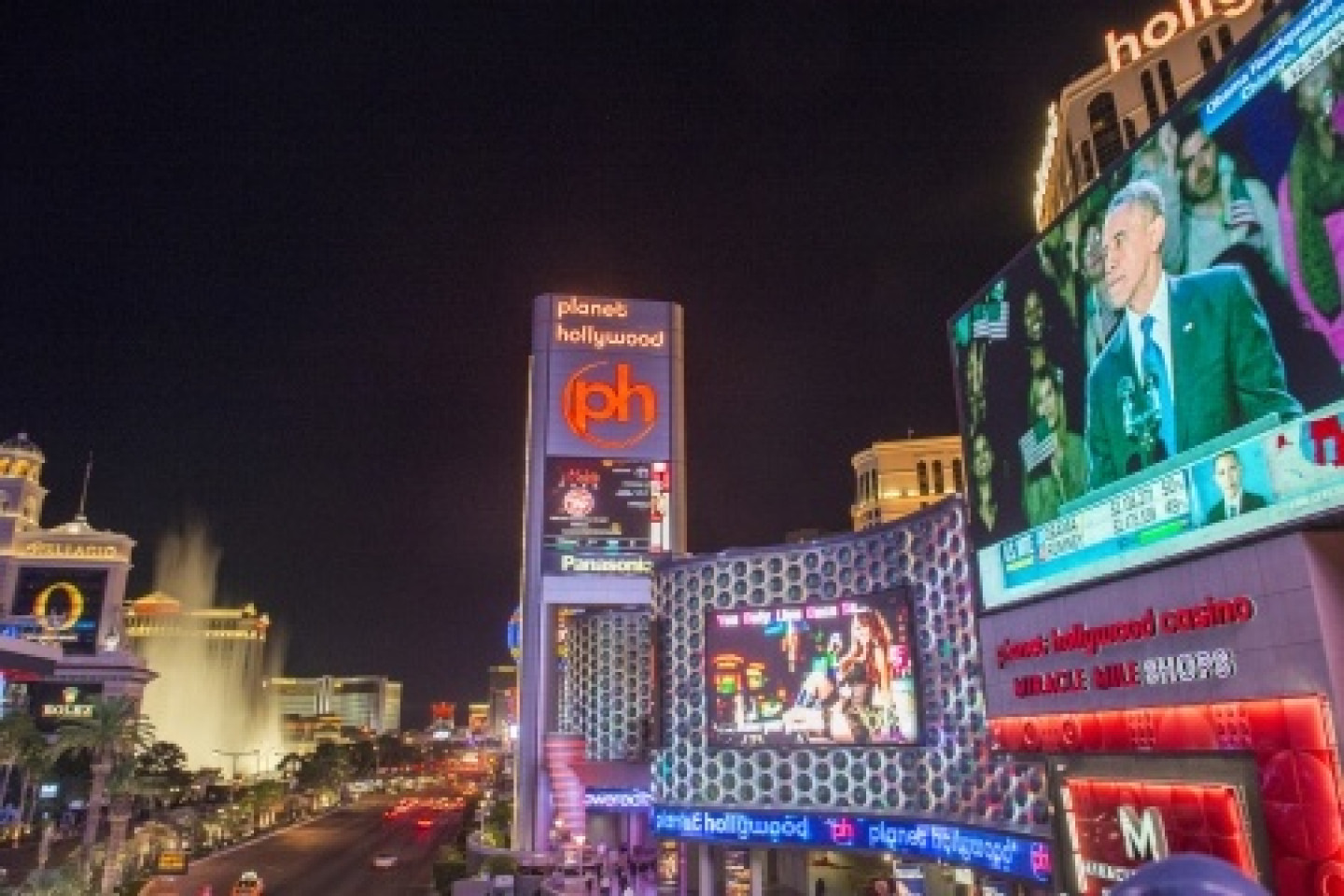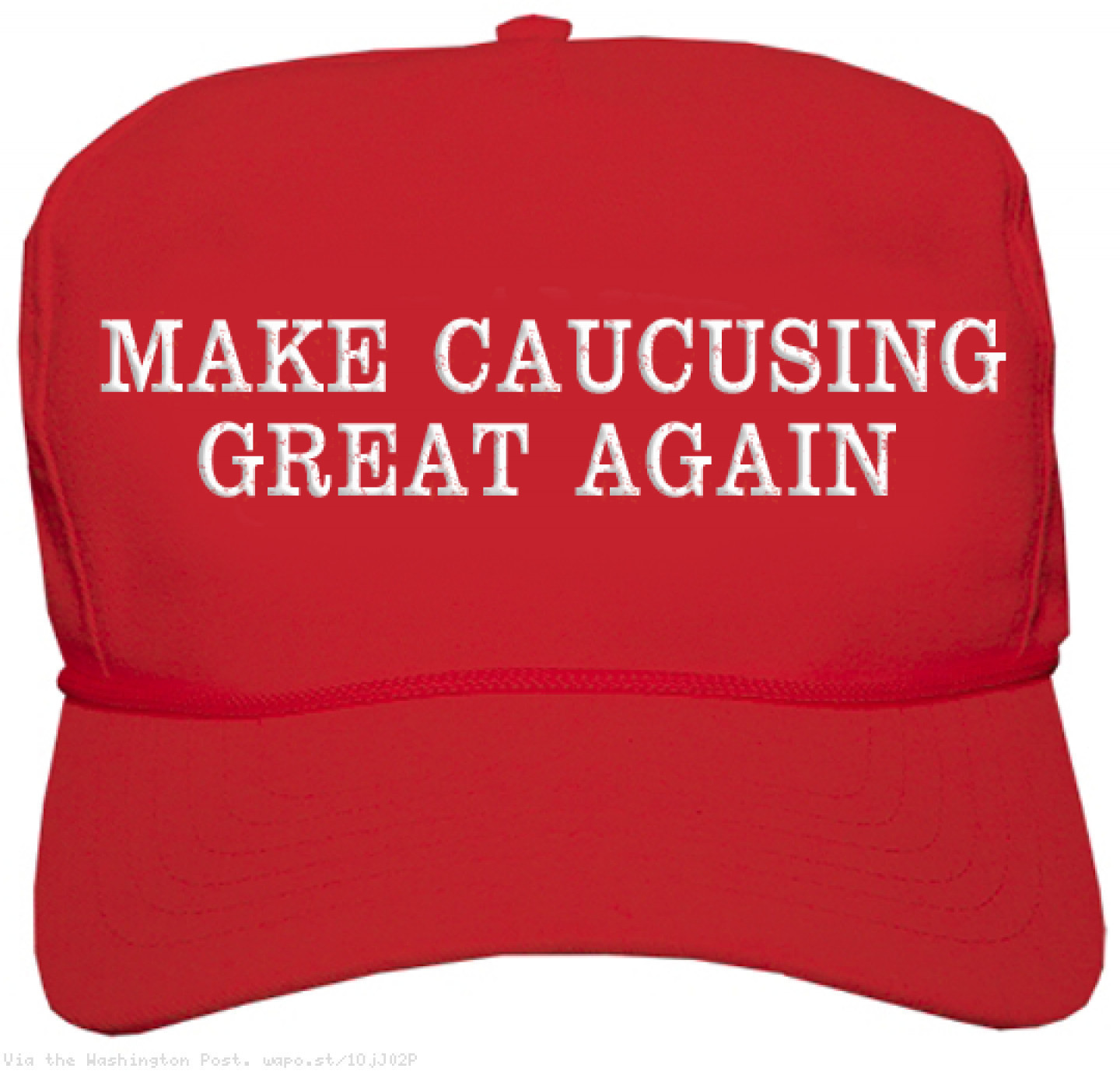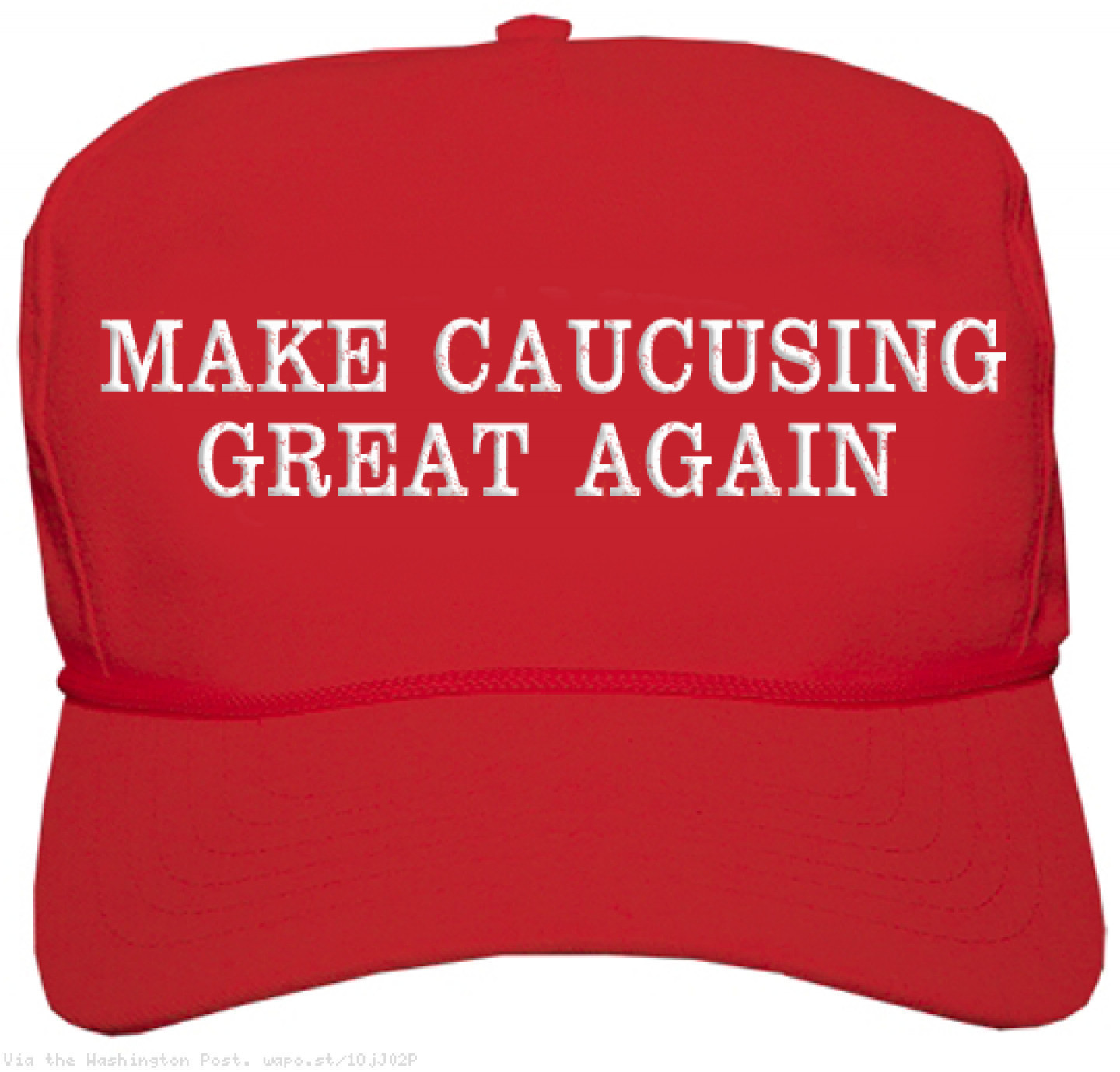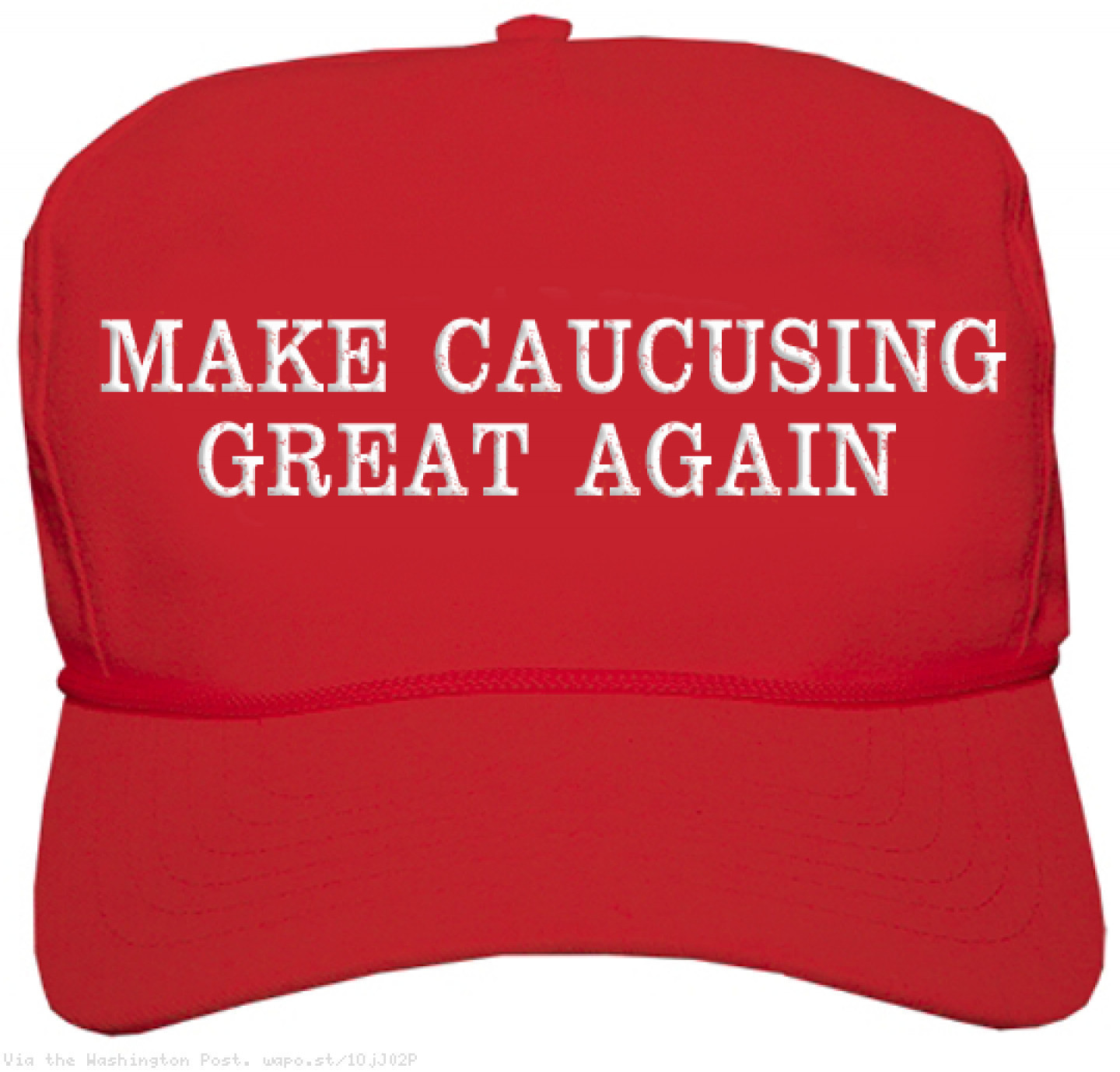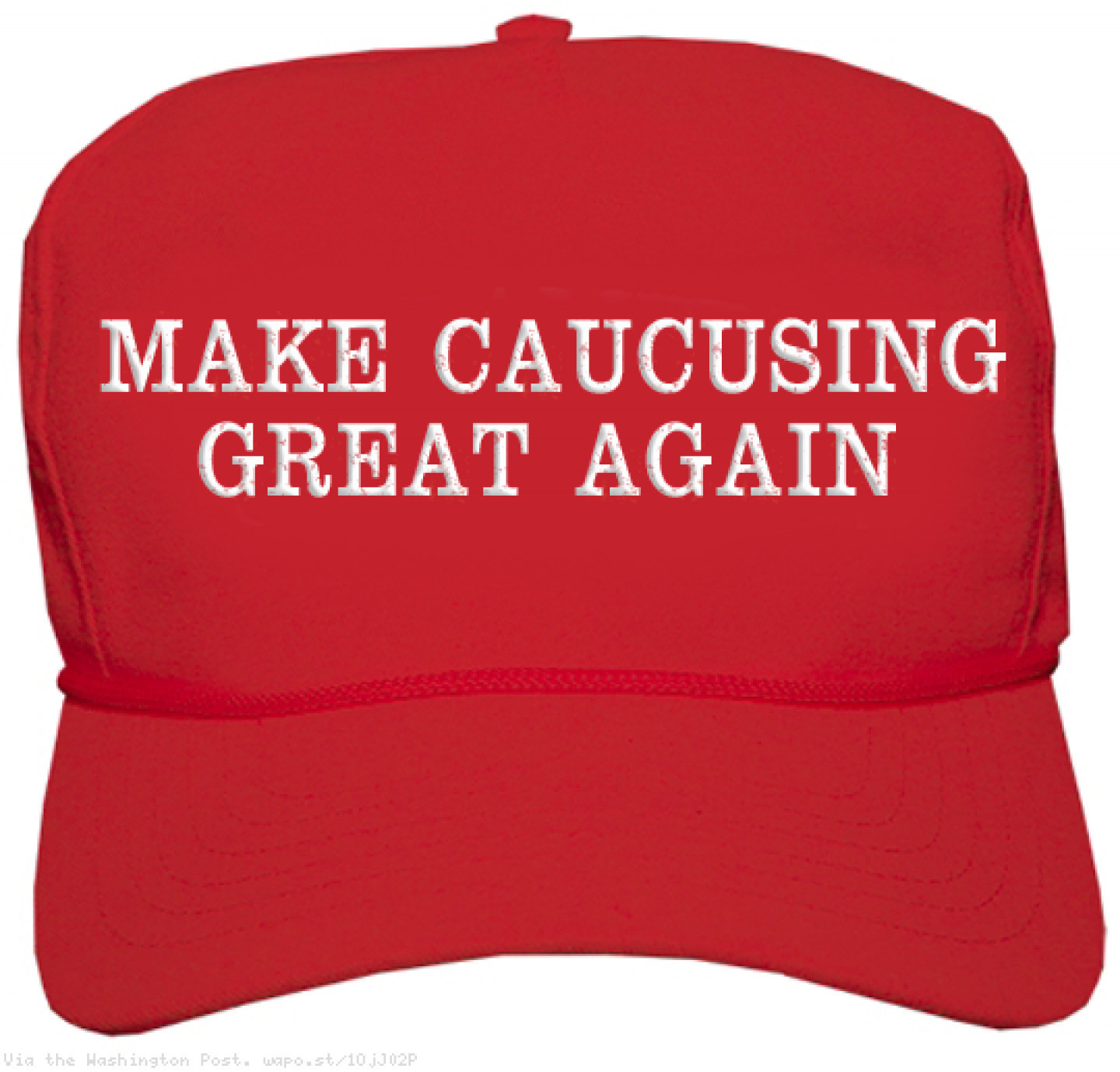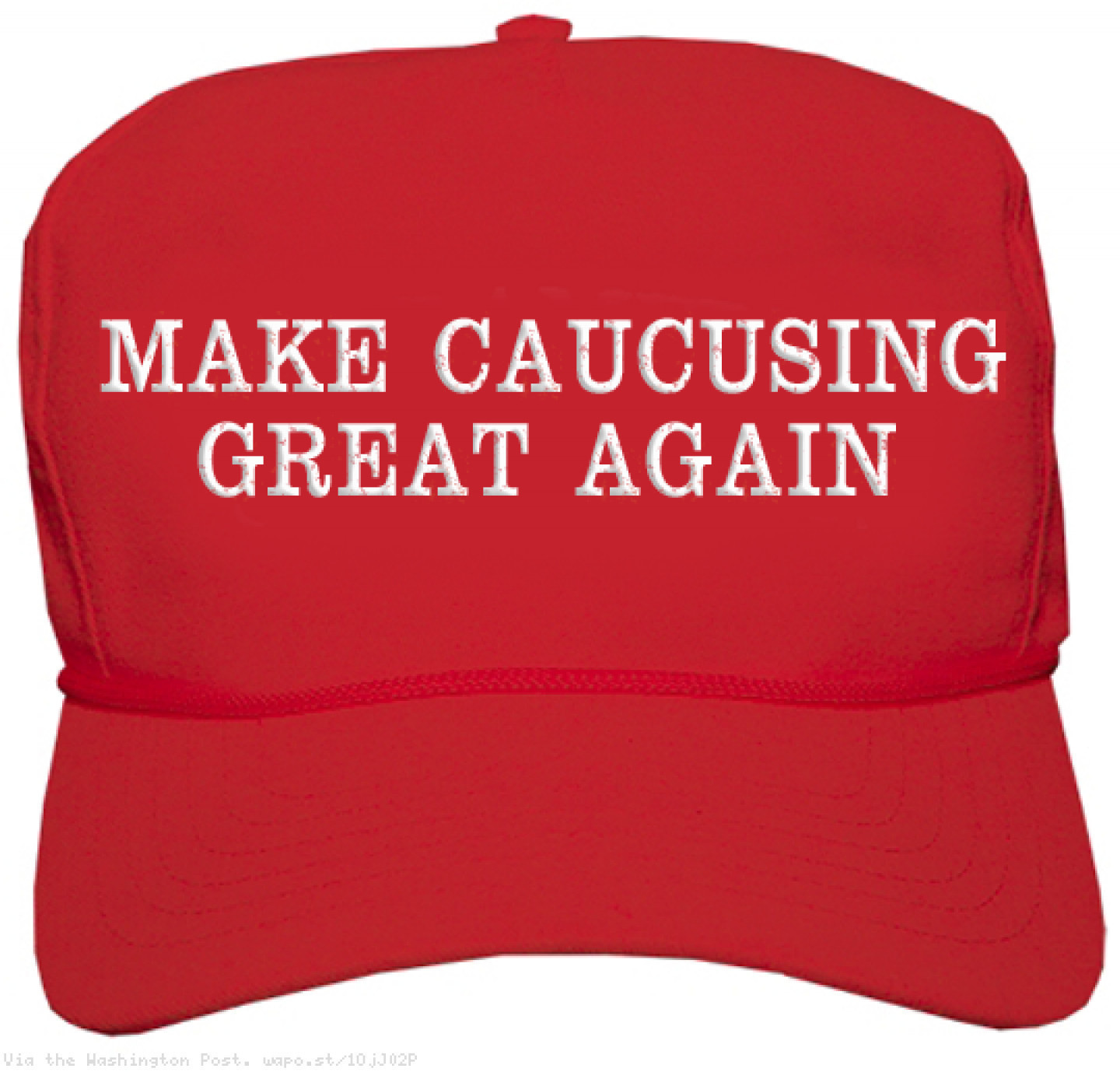"If one of them refuses to do it, they will be dismissed and we’ll bring in an alternate...I know there’s been talk about that in other states but that will not happen here."
-Nevada Secretary of State elections deputy Wayne Thorley
What if I was to tell you the electoral college..isn't a college at all?1)Sorry
Worse, this ragtag group of federal officials still don't even have office space, after all this time.
Finally, though, the electoral college has made its way to the national consciousness2)and here i thought my "Opaque election rules and procedures" club would get off to a much faster start. I'll talk to the marketing guy.., so I thought it'd be fun to talk about what the electoral college is, what they will be doing next Monday, and most importantly, examine if laws that command a federal electoral vote a particular way are constitutional.
Luckily, our elected officials gave us some great material to work with.
"Haven't I Voted Twice This Year Already?"
Well, if you start in February, a few. One more, I promise. And this time you don't even need to participate. Your job as engage citizen voter is completed for this year.
In November, you didn't vote for president, but for electors that will vote for president this coming Monday, 19 December. The following six people were elected from Nevada:
- Dayananda Prabhu Rachakonda (The only one from Las Vegas. Will the Tyranny of the North know no bounds??)
- Larry Jackson
- Joetta Brown
- Paul Catha II
- Greg Gardella
- Teresa Benitez-Thompson
On Monday, these 6 federal electors will convene in Carson City because the electors do not meet in one place, but at all the state capitols. This has been in effect since 1948.
In all previous elections the electors voted the same way as the people who elected them, and given that Nevada voted for Hillary Clinton, it is fair to assume that all six will vote for Hillary too.
But do they have to?
For the first time in my lifetime (likely yours too), there is serious talk of if the electoral college voters may express a different preference than that of the voters. (Vote for someone else)
Today I am not asking should the electors vote their faith, only if they can.
Now, I try not to be too tough in this forum3)This does function as marketing material as well, as I'm sure you are aware, but the Secretary of State elections deputy Wayne Thorley put out quite the statement in the press regarding this subject:
Secretary of State elections deputy Wayne Thorley said both major parties submitted the names of their six electors, one for each Nevada member of the House and U.S. Senate, well before the election.
He said since Hillary Clinton won the popular vote in Nevada, it will be the Democratic list who meets and votes that date. Rather than all 535 Electoral College electors going to Washington D.C. for that vote, they meet in each state capitol so that vote will take place in the capitol as well.
He said under Nevada law, they’re required to vote for Clinton and Tim Kaine.
“If one of them refuses to do it, they will be dismissed and we’ll bring in an alternate,” he said. “I know there’s been talk about that in other states but that will not happen here.”
Wait wut?
"We'll bring in an alternative" is quite the loaded statement.
Some potential questions consider:
Who is the "we" he is referring to? Does the Elections office have its own enforcement arm? Since when?
What do you mean by "bring"? Is that a physical threat against a federal official?
Who is the alternative? Which alternative is selected first? What behavior needs to be exhibited to trigger this threat?
(I can keep going.)
Most importantly, the assertion that Nevada's electors have to vote for Clinton/Kaine is unconstitutional and false. (And disappointing as a Nevada citizen to see an elected official make).
Let's not get mad at Wayne though, he's not the only elected official in Nevada that does not understand this. Our legislature actually put one of these silly loyalty pledge4)What year is it? laws on our books in 2013:
NRS 298.065 Meeting of presidential electors; nominees whose candidates receive highest number of votes become presidential electors; procedures for filling vacancies; pledge of presidential electors selected at meeting.
1. The Secretary of State shall preside at the meeting of presidential electors held pursuant to 3 U.S.C. § 7. Except as otherwise provided in this section and NRS 298.075, the nominees for presidential elector whose candidates for President and Vice President receive the highest number of votes in this State at the general election are the presidential electors.
2. If a nominee for presidential elector is not present to vote at the meeting, the position of presidential elector to be filled by that nominee for presidential elector is vacant and the vacancy must be filled as follows:
(a) If the alternate is present at the meeting, the Secretary of State shall appoint the alternate to the position of presidential elector;
(b) If the alternate is not present at the meeting, the Secretary of State shall appoint to the position of presidential elector a person chosen by lot from among the alternates present at the meeting, if any;
(c) If no alternates are present at the meeting, the Secretary of State shall appoint to the position of presidential elector a person who is:
(1) A qualified elector;
(2) Present at the meeting; and
(3) Chosen through nomination by and plurality vote of presidential electors who are present at the meeting; and
(d) If votes cast pursuant to subparagraph (3) of paragraph (c) result in a tie, the Secretary of State shall appoint to the position of presidential elector a person who is chosen by lot from those persons who tied for the most votes.
3. If all the positions of presidential elector are vacant and no alternates are present at the meeting, the Secretary of State shall appoint from the qualified electors one person to the position of presidential elector, and the remaining positions must be filled pursuant to paragraphs (c) and (d) of subsection 2.
4. The nomination by and vote of a single presidential elector is sufficient to choose a person to be appointed to the position of presidential elector pursuant to subparagraph (3) of paragraph (c) of subsection 2.
5. Except as otherwise provided in subsection 6, a person appointed to the position of presidential elector pursuant to this section may not serve in that position unless the person signs a pledge in substantially the following form:
I agree to serve as a presidential elector and to vote only for the nominees for President and Vice President of the party or the independent candidates who received the highest number of votes in this State at the general election.
6. If a person appointed to the position of presidential elector pursuant to this section is physically unable to sign the pledge, the pledge may be signed by proxy.
7. If a person appointed to a position of presidential elector pursuant to this section does not sign the pledge described in subsection 5, that position of presidential elector is vacant and must be filled pursuant to this section.
(Added to NRS by 2013, 1231)
NRS 298.075 Voting for President and Vice President; procedures when presidential elector acts contrary to pledge; recording of votes.
1. The Secretary of State shall provide to each presidential elector a ballot for the office of President and a ballot for the office of Vice President. The presidential elector shall mark the applicable ballot provided by the Secretary of State for the person who received the highest number of votes at the general election for the office of President and the person who received the highest number of votes at the general election for the office of Vice President. The presidential elector shall sign and legibly print his or her name on the ballots and present the ballots to the Secretary of State.
2. After all presidential electors have presented their ballots to the Secretary of State, the Secretary of State shall examine each ballot. If a presidential elector:
(a) Presents both ballots and the ballots are marked with votes for the person who received the highest number of votes at the general election for the office of President and the person who received the highest number of votes at the general election for the office of Vice President, respectively, the Secretary of State shall accept both ballots.
(b) Does not present both ballots, presents an unmarked ballot or presents a ballot marked with a vote that does not conform with the provisions of subsection 1:
(1) The Secretary of State shall refuse to accept either ballot of the presidential elector; and
(2) The Secretary of State shall deem the presidential elector’s position vacant. The vacancy must be filled pursuant to the provisions of NRS 298.065. The person appointed to fill the vacancy in the position of presidential elector, after signing the pledge described in NRS 298.065, shall mark both ballots and present both ballots to the Secretary of State pursuant to this section.
3. Only the votes accepted by the Secretary of State pursuant to this section may be recorded on the lists of votes made by the presidential electors pursuant to 3 U.S.C. § 9.
(Added to NRS by 2013, 1232)
Well, at least I admire the chutzpah.
I thought there was consensus among legal professionals of how federalism works, but apparently not.
You have to be wondering before we get into the legal weeds (I know I was), where did this come from/who's idea is this?
(This is the part that doesn't make the legislature look very good).
..It was copied and pasted from a lobbyist organization called Uniform Laws.5)If you unfamiliar with these ALEC-type organizations, I will explain briefly. Very rich folks paid to found the fancy organization with governmental sounding names to write drafts of laws they would like see enacted in the states. Jane Mayer's book on the topic is excellent
The people who do this for a living (shadow-write your state laws) don't think the public is offended by this idea that people would sit in Washington D.C. and write your Nevada laws.6)This has always shocked me. Not only do they keep a public-running tally of the states in which they've succeeded, they even provide a handy map as a visual aid.
Our legislators didn't even have the shame to not openly admit that this law was suggested by a lobbyist; the notes from the 2013 session say explicitly they are adopting this uniform law.7)Please have more shame going forward
Justification for laws often takes place in the Legislative Digest (for example I am writing about the new moped law, and the digest says taxing/regulating mopeds is the the safety of the riders. No, no, not today..). Here is the Digest for the loyalty pledge law. It provides no justification at all. You would think for as something as important as elections..
So why did Nevada, after voting in one manner since 1948, need to update the voting laws in 2013? The best rhetoric you can find is this for-profit argument (as in, he was told was conclusion to have and then justified it accordingly) from this Northwestern Professor8)What's going on at Northwestern? Yikes.
I'm not impressed with what he wrote, especially given the incentive structure; I'll allow you to evaluate it on your own.
My Opinion Regarding the Electoral College is Fairly Common; I Wish I Could Justify Why the Nevada Law Got Put Into Effect
As the last sentence of our loyalty pledge law makes clear ("Only the votes accepted by the Secretary of State pursuant to this section may be recorded on the lists of votes made by the presidential electors pursuant to 3 U.S.C. § 9".), our legislators are at least aware that there is federal law governing the electoral college.
My favorite part of that sentence of our statute, is that if they would check back just one more section they would see that there already is federal law governing the electoral college 3 U.S.C. § 8:
"The electors shall vote for President and Vice President, respectively, in the manner directed by the Constitution."
You know what is literally not "the Constitution"? That's right, the Nevada legislature. Or any other state legislature for that matter.9)Please find me the constitutional provision that allows the states to invalidate electoral college votes.
It's from this same chapter in the federal code that we decide when the electoral college meets:
3 U.S. Code § 7 "The electors of President and Vice President of each State shall meet and give their votes on the first Monday after the second Wednesday in December next following their appointment at such place in each State as the legislature of such State shall direct."
So what we have here is called a conflict of laws because the state of Nevada claims they can disqualify a elector based on her vote, and the federal law says "the constitution" (and nothing else) governs the electors.
Who wins? The federal law. By the Supremacy Clause of the U.S. Constitution:
This Constitution, and the Laws of the United States which shall be made in Pursuance thereof; and all Treaties made, or which shall be made, under the Authority of the United States, shall be the supreme Law of the Land; and the Judges in every State shall be bound thereby, any Thing in the Constitution or Laws of any State to the Contrary notwithstanding.
The laws of the United States are supreme to state laws. We're talking McCulloch v. Maryland type of certainty here.10)As in, there is consensus
We saw this not too long ago with the GMO labeling laws and Vermont. We discussed how, in response to Vermont's strict GMO-label law, the industry moved to get a federal law passed covering the same topic, making the federal law supreme to that hippie-Vermont GMO bill.11)Oh Vermont, never change..You better believe they carved exemptions for their home industries cheese/syrup
So am I saying that the entire loyalty pledge law in Nevada is unconstitutional? No. The federal congress granted authority to the states to address electoral vacancies:
Each State may, by law, provide for the filling of any vacancies which may occur in its college of electors when such college meets to give its electoral vote. 3 U.S. Code § 4
So if there is a vacancy on Monday (one of the electors is absent), NRS 298 instructs us how the Secretary of State will fill the spot. The law they crafted, although weird seems fine with respect to vacancies.
So the power to resolve vacancies has been delegated to the states by this 1948 federal statute covering the electoral college. Why did it take until 2013 for Nevada electeds to take this option? What changed?
The answer is so incendiary I can't publish it in marketing material like this. There's a reason you can't find a written justification for this law anywhere.
What I will say though, is if this was about "the will of the people" not being met, isn't the obvious solution direct election of the president? (I would support such a measure).
100 years ago we weren't even directly electing our U.S. Senators; we've certainly made some progress.12)I'm listening President Obama; I swear. If the goal is to ensure that the people's will is effectuated through the vote, the best means to do this is not through obscure, likely unconstitutional, statutes. It's also highly inefficient.
Nevada's Loyalty Pledge Law Isn't Seen As Unconstitutional Just By Me
The (nonpartisan) Congressional Research Office exists to provide necessary background to our legislators before voting on complicated issues. From the limited material I've read, their work is excellent. I've never heard a cross word against them (Evan McMullin worked for them explaining foreign policy before he ran for president. Bright people like that work there. You will get to see the person who wrote the proceeding grafs momentarily.). In April (8 months ago) of this year, they published a clear explanation of what the electoral college is and how it got to this place for U.S. members of congress13)This is the office that your representatives rely on for data. It's hard to be more trusted. The man is obviously more conservative14)when I use this word I don't mean anything pejorative than me, yet we've reached the same conclusion:15)The law isn't supposed to be political
Presidential electors in contemporary elections are expected, and, in many cases pledged, to vote for the candidates of the party that nominated them. While there is considerable evidence that the founders intended that they would be independent, weighing the merits of competing presidential candidates, the electors have been regarded as agents of the public will since the first decade under the Constitution. They are expected to vote for the candidates of the party that nominated them. “Faithless” electors provide an occasional exception to that accepted rule.
...Notwithstanding the tradition that electors are bound to vote for the candidates of the party that nominated them, individual electors have sometimes broken their commitment, voting for a different candidate or for candidates other than those to whom they were pledged; they are known as “faithless” or “unfaithful” electors. Although 24 states seek to prohibit faithless electors by a variety of methods, including pledges and the threat of fines or criminal action, most constitutional scholars believe that once electors have been chosen, they remain constitutionally free agents, able to vote for any candidate who meets the requirements for President and Vice President. Faithless electors have been few in number: since 1900, there have been eight, one each in the elections of 1948, 1956, 1960, 1968, 1972, 1976, 1988 and 2004, and one blank ballot cast in 2000. They have never influenced the outcome of a presidential election, however, but their “faithless” votes, or failure to vote, were all duly recorded, and none of these faithless electors was prosecuted for this action. (Emphasis added).
I would like to think that any person with a basic understanding of federalism would conclude the same, but sophism seems to be all the rage.
The National Archives points out that the Supreme Court has "not specifically ruled on the question of whether pledges and penalties for failure to vote as pledged may be enforced under the Constitution."16)Source That's a fair point. This is undecided law.
Do you really think a federal court is going to enforce a state law that commands a federal official how to vote? Really?
The Secretaries of State throughout the country produced this nice handout where you can see how popular this idea has gotten. Doesn't make it anymore constitutional17)I think the word ends in -hameful.
Mess With the Electoral College at Your Own Risk
Now, if you were an elector and trouble-maker (We know that at least one of the electors is an ran Bernie's operation in Reno, making this a possibility) you might have some potential fun come Monday.
Let's say for example you do not like this loyalty pledge law and want it declared unconstitutional by a federal court. In law, there's a rule called standing which determines what potential plaintiffs are sufficiently connected to a matter enough to sue. It's used to stop too many people from suing when they should not.
It's possible that the only people in Nevada that would have standing to challenge the loyalty pledge law would be one of these electors. And they may only have an opportunity to do so every 4 years.
Only if the elector voted as s/he intended, but then was removed by the Secretary of State (as they are threatening to do in NRS 298.), would said elector have standing and a cause of action to bring a claim.
The Secretary of State's office needs to be prepared for this. Hopefully between now and then, they realize they should not enforce an unconstitutional law, and allow the electors to vote as they choose. (The Congressional Research Office says one of these laws have never been enforced..there must be reason.)
The New York Times recently used our Secretary of State as an example of an elected official using the office to lobby (They have Nevada Energy emails), and I can't be the only person living here waiting for an explanation. All eyes will be directed their way early next week.
The Secretary of State's work Monday is likely the most important they will likely ever do. Here's to hoping they realize that.
If you would like to learn more about the electoral college (or check my work), I invite you to spend a few minutes with Mr. Neale (the Congressional Research Office employee I quoted at length).
If you are unsure if it is proper for an elector to evaluate the candidate for president, just watch the first two minutes.
Thanks for reading.
Footnotes
| ↑1 | Sorry |
|---|---|
| ↑2 | and here i thought my "Opaque election rules and procedures" club would get off to a much faster start. I'll talk to the marketing guy.. |
| ↑3 | This does function as marketing material as well, as I'm sure you are aware |
| ↑4 | What year is it? |
| ↑5 | If you unfamiliar with these ALEC-type organizations, I will explain briefly. Very rich folks paid to found the fancy organization with governmental sounding names to write drafts of laws they would like see enacted in the states. Jane Mayer's book on the topic is excellent |
| ↑6 | This has always shocked me |
| ↑7 | Please have more shame going forward |
| ↑8 | What's going on at Northwestern? Yikes |
| ↑9 | Please find me the constitutional provision that allows the states to invalidate electoral college votes. |
| ↑10 | As in, there is consensus |
| ↑11 | Oh Vermont, never change..You better believe they carved exemptions for their home industries cheese/syrup |
| ↑12 | I'm listening President Obama; I swear. |
| ↑13 | This is the office that your representatives rely on for data. It's hard to be more trusted. |
| ↑14 | when I use this word I don't mean anything pejorative |
| ↑15 | The law isn't supposed to be political |
| ↑16 | Source |
| ↑17 | I think the word ends in -hameful. |
